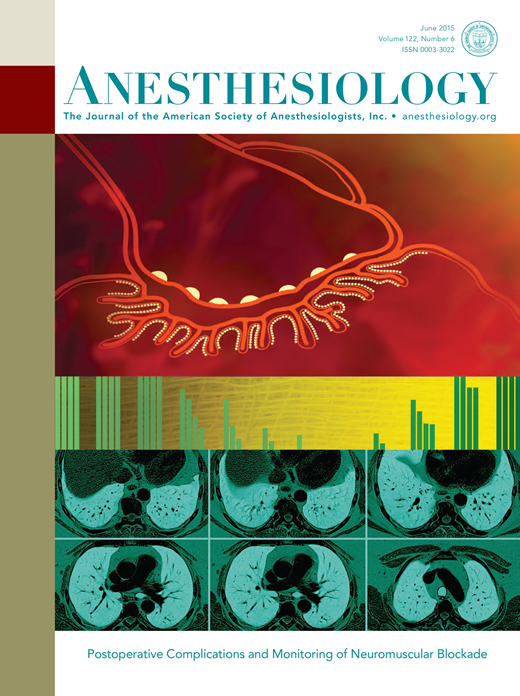Anesthetic Amnesia: The Forgotten Importance of Forgetting?
IF 9.1
1区 医学
Q1 ANESTHESIOLOGY
引用次数: 0
Abstract
There is increasing evidence that the impairment of consciousness by anesthetic drugs does not always lead to its complete absence and that the loss of subjective experience with anesthesia may at times be an illusion created by amnesia. However, the study of how anesthetic drugs cause amnesia, and importantly how they fail, has received less attention than the other cardinal properties of anesthesia. There is no reliable biomarker to determine the adequacy of pharmacologic amnesia in real time. Anesthetic drugs can influence all stages of memory formation and recall, and their amnestic effects are dissociable from their hypnotic effects; for example, propofol has potent specific amnestic potential, whereas dexmedetomidine is a pure hypnotic. Post-traumatic stress disorder cluster symptoms, which constitute a disorder of amygdala-centered memory systems, are commonly related to surgical memories under both general anesthesia and procedural sedation and need to be better understood and managed.麻醉健忘症:遗忘的重要性?
越来越多的证据表明,麻醉药物对意识的损害并不总是导致意识完全丧失,麻醉下主观经验的丧失有时可能是失忆症造成的幻觉。然而,与麻醉的其他基本特性相比,麻醉药物如何引起健忘症,以及重要的是它们如何失效的研究受到的关注较少。目前还没有可靠的生物标志物来实时确定药理学遗忘的充分性。麻醉药物可以影响记忆形成和回忆的所有阶段,其遗忘作用与其催眠作用是可分离的;例如,异丙酚具有强大的特异性遗忘潜能,而右美托咪定是一种纯粹的催眠药。创伤后应激障碍簇状症状是一种杏仁核中心记忆系统的紊乱,通常与全身麻醉和手术镇静下的手术记忆有关,需要更好地理解和处理。
本文章由计算机程序翻译,如有差异,请以英文原文为准。
求助全文
约1分钟内获得全文
求助全文
来源期刊

Anesthesiology
医学-麻醉学
CiteScore
10.40
自引率
5.70%
发文量
542
审稿时长
3-6 weeks
期刊介绍:
With its establishment in 1940, Anesthesiology has emerged as a prominent leader in the field of anesthesiology, encompassing perioperative, critical care, and pain medicine. As the esteemed journal of the American Society of Anesthesiologists, Anesthesiology operates independently with full editorial freedom. Its distinguished Editorial Board, comprising renowned professionals from across the globe, drives the advancement of the specialty by presenting innovative research through immediate open access to select articles and granting free access to all published articles after a six-month period. Furthermore, Anesthesiology actively promotes groundbreaking studies through an influential press release program. The journal's unwavering commitment lies in the dissemination of exemplary work that enhances clinical practice and revolutionizes the practice of medicine within our discipline.
 求助内容:
求助内容: 应助结果提醒方式:
应助结果提醒方式:


